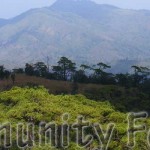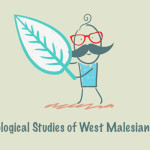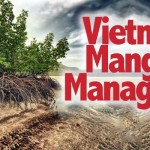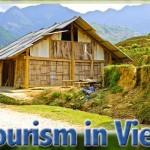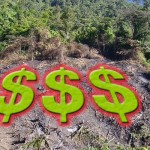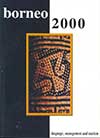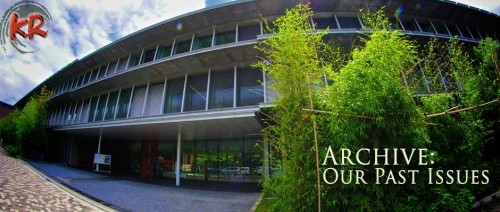Kyoto Review of Southeast Asia. Issue 2 (October 2002). Disaster and Rehabilitation
EDITORIAL
The second issue of the Kyoto Review focuses on environmental disaster and efforts by communities, NGOs, and governments to rehabilitate damaged forests and other resources. As our contributors make clear, natural habitat recovery is not simply an ecological and economic question, but also concerns the rights and livelihoods of people who have traditionally maintained the land.
In Review Essays, Wil de Jong and Momose Kuniyasu trace the evolution of ideas and practices—community forestry and ecological studies, respectively. Sato Yuichi examines the specific disaster of illegal logging in Indonesia and draws lessons from his experience there. And Fujita Wataru critically compares the work of a Japanese scholar and Thai scholar-activist who write about rural Thailand.
In Features, longer essays examine environmental management efforts, giving us insight into the complicated nature of “illegal logging” and community management. Tuong Vi Pham looks at gender and access to natural resources and development; Le Thi Van Hue details one village’s experience with mangrove management; and Phan Nguyen Hong, Quan Thi Quynh Dao, and Le Kim Thoa assess the potential of ecotourism in Vietnam. From an historical and institutional viewpoint, respectively, Pinkaew Laungaramsri and Pearmsak Makarabhirom explain why local people have thus far not been at the center of rehabilitation efforts. Finally, three commentaries give scholars’ thoughts on international aid, globalization, and the process of nomadic people becoming sedentary.
Books of Notes examines the impact of illegal timber trafficking in Indonesia, land tenure and customary rights in Borneo, participatory planning in Makassar Strait islands, and reforestation efforts by an upland community in the Philippines.
In Reprints, we present a news story and a stimulating discussion between an activist, a congressman, and an academic on the controversial garbage issue in the Philippines. Two reports on the pollution of mainland Southeast Asia’s major rivers – the Chao Phya and the Mekong – shed light on the problems faced by those who depend on water, perhaps the next global environmental issue that will demand our attention.
Finally, we would like to thank Prof. Terry Rambo and Wataru Fujita of CSEAS for their timely help, as well as our translators for this issue: Andi Amri and Retno Kusumanigtyas, Sophia Guillermo, Suzuki Shinji, and Jiranthara Srioutai and Somjit Jirananthiporn of the Chalermprakiat Center of Translation and Interpretation at Chulalongkorn University.
Donna Amoroso
Editor, Kyoto Review of Southeast Asia
ISSUE 2 — REVIEW ESSAYS |
||
|
By Wil de Jong | |
|
By Fujita Wataru | |
|
ByMomose Kuniyasu | |
|
By Patrick Jory | |
ISSUE 2 — REPRINTS |
||
|
By Jet Damazo | |
|
Kyoto Review | |
|
By Piyaporn Wongruang | |
|
By Kamol Sukin and Sirinart Sirisunthorn | |
ISSUE 2 — FEATURES |
||
|
By Tuong Vi Pham | |
|
By Le Thi Van Hue | |
|
By Phan Nguyen Hong, Quan Thi Quynh Dao, Le Kim Thoa |
|
|
By Pinkaew Laungaramsri | |
|
By Pearmsak Makarabhirom | |
|
By Hjorleifur Jonsson | |
|
By D.G. Donovan | |
|
By Zawawi Ibrahim | |
ISSUE 2— BOOK REVIEWS |
||
|
|
By Hamamoto Satoko | |
|
|
By Kato Tsuyoshi | |
|
|
By Ichikawa Masahiro | |
|
|
By Coeli Barry and Donna Amoroso |
EDITORIAL II
We stand on the brink of a new era in tropical environment management. The preceeding eras of colonial rule and development-driven postcolonial government have brought world-wide environmental disaster, and in the new era rehabilitation will be key, especially in the tropical environment of Southeast Asia.
European colonial powers began to invade the environments of many countries in the eighteenth century and through the mid-twentieth century caused the destruction of tropical rain forests in favor of commercial crops and plantation agriculture. These enterprises, which brought benefit to the colonial countries, were established on the most favorable land and sacrificed local peoples’ lives and cultures. Independence from colonial rule brought no change in environmental management. Needing quick income for the development of new nations, many postcolonial governments took advantage of easy access to their richest resources—tropical rain forests. After oil and gas, timber became the most valuable item exported to the developed world. After decades of this path to development, most of the region’s economies have become richer, but the forest and its related environments have become much, much poorer.
Destruction intensified in the period from 1980 to 2000, with widescale forest fires and mismanagement of tropical swamp areas. The first big forest fires occurred in Indonesia in 1983, and many were later set deliberately to clear land for large plantations. These forest fires have affected all the surrounding countries and become a critical regional issue. Peat swamp forests and mangroves have been similarly mismanaged. A 100 million ha rice-farming project has failed in Central Kalimantan and shrimp farming in coastal areas throughout Southeast Asia has left toxic and abandoned ponds in its wake. Clearly, a new type of environmental management is called for.
The 1992 United Nations Conference on Environment and Development (the Rio Summit) marked the worldwide emergence of environmental movements, some with a focus on the human rights of forest dwellers. These point the way to a new approach to environmental management. The concurrence of these movements with ongoing environmental disasters has given new power to NPO and NGO groups pushing political and international organizations toward more sustainable and harmonious development policies. With the help of these organizations, many multi-level projects have begun, including those promoting reforestation and community resource management.
Rehabilitation is not only a problem of tropical areas, but also of developed countries, which face issues of pollution, energy use, social and economic security, human rights, and demographic change. In the context of these difficult problems, tropical Asia does not look hopeless. For environmental solutions to emanate from the tropical countries, we need careful reassessment of past failures and discussion of how to create a new environment in which nature and society can be harmonious. This is an urgent issue, and we should start by pursuing knowledge about the way of life of local people who live in daily contact with the environment. These can give a good example of how to make the tropical environment harmonious and sustainable.
The era of the twenty-first century should be a new beginning for the world environment. Areas corrupted by wide-scale destruction should be carefully managed and rehabilitated, so that rich tropical areas regain their precolonial status. Most importantly, local people should profit most from this land and enjoy a culturally rich life under the warm tropical sun.
Yamada Isamu



